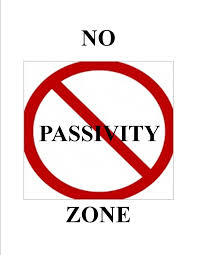passivity
英 [pæsˈɪv.ə.ti]
美 [pæsˈɪv.ə.t̬i]
- n. 被动性;被动结构;无抵抗
使用频率:

记忆方法
将“passivity”分解为“pass”和“ivity”。想象“pass”是一扇门,而“ivity”是门的状态,表示“静止不动的”,这样可以帮助记忆“passivity”意为“被动性”或“无动于衷”。
以上内容由AI生成, 仅供参考和借鉴
中文词源
passivity 被动,消极
来自passive,被动的,消极的。
英语词源
- passivity (n.)
- 1650s, from passive + -ity.
权威例句
- 1. Television , says Klompus, contributes to children's passivity.
- 她认为这是因为什么也不要求孩子们去做的缘故.
- 2. She met his eagerness with that smiling, tantalizing passivity.
- 她以笑盈盈的 、 半推半就的姿态对付他那热切的情意.
- 3. This conception of the " passivity " of intellect is perhaps the greatest barrier to philosophical thinking.
- 这种心智 “ 被动 ” 观可能是哲学思考的最大障碍.
- 4. He stil thought perhaps that he would win her by the appeal of passivity , of personality.
- 他那时也许仍然希望以他的品格,他的温顺来感动她.
- 5. He offered hope spontaneity in a country in a drowning in its own passivity.
- 他对于一个沉溺在消极之中的国家提出了奋发自强的希望.